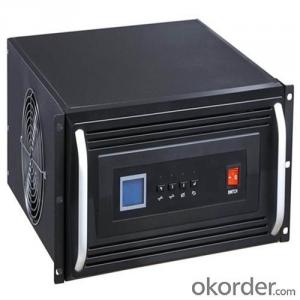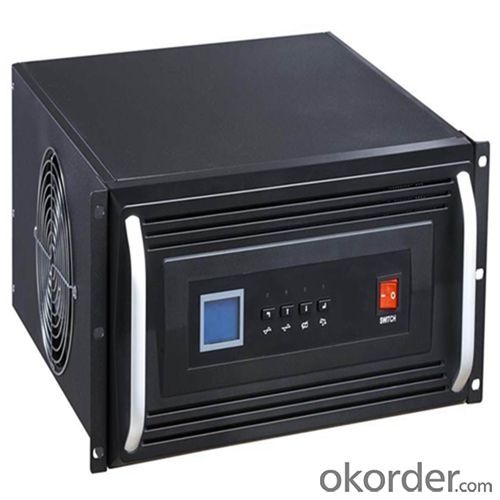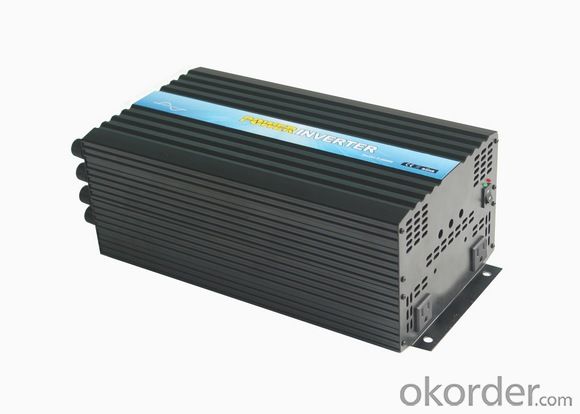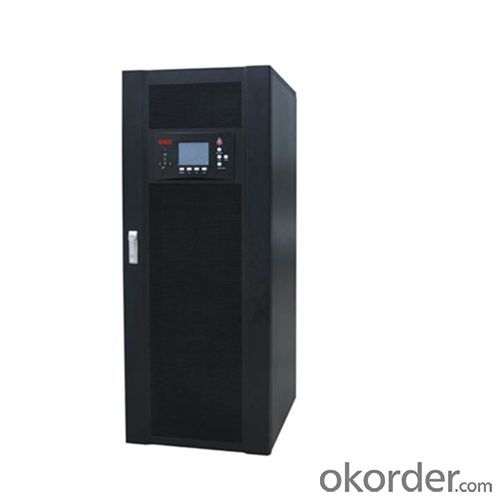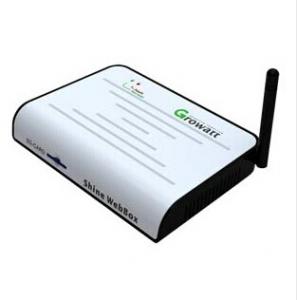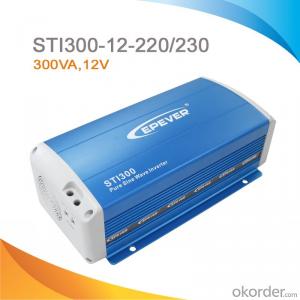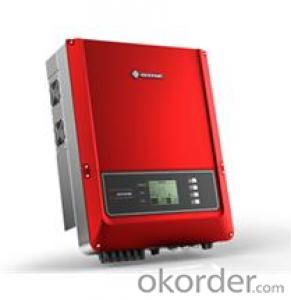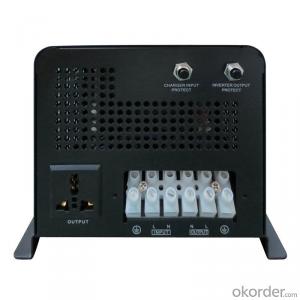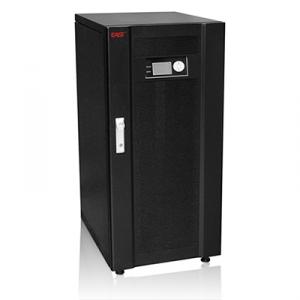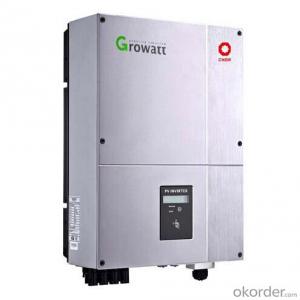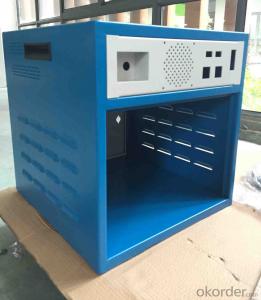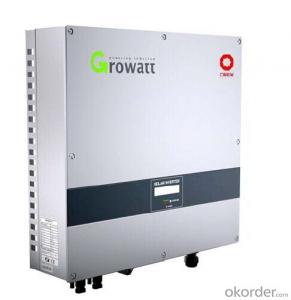CNBM-1500TL Solar Inverter Off Grid
- Loading Port:
- Shanghai
- Payment Terms:
- TT OR LC
- Min Order Qty:
- 1000 watt
- Supply Capability:
- 100000000 watt/month
OKorder Service Pledge
OKorder Financial Service
You Might Also Like
1.Features of the Solar Inverter
Maximum efficiency of 97.8% and wide input voltage range
Internal DC switch
MTL-String
Sound control
Bluetooth/RF technology/WF-Fi
Transformerless GT topology
2.Data sheet of the Solar Inverter
| Model | CNBM-1500TL |
| Input data (DC) | |
| Max. DC power | 1800W |
| Max. DC voltage | 450V |
| PV Voltage Range | 100V~450V |
| Max.input current | 10A |
| Number of MPP trackers/strings per | 1/1 |
| MPP tracker |
| OUTPUT (AC) | |
| Rated AC output power | 1600W |
| Max AC power | 1650W |
| Max output current | 8A |
| Power Factor | 1 |
| THDI | <3% |
| AC connection | Single phase |
| Efficiency | |
| Max efficiency | 97% |
| Euro weighted efficiency | 96.5% |
| MPPT efficiency | 99.5% |
| Protection devices | |
| Output over voltage protection varistor | yes |
| Ground fault monitoring | yes |
| Grid monitoring | yes |
| GENERAL Data | |
Dimensions, D X W X H (mm) | 360x329x132 |
| Weight (kgs) | 11.5 |
| Operating temperature range | -25℃...+60℃ |
| Altitude | 2000m(6560ft)without derating |
| Self Consumption night | <0.5W |
| Topology | Transformerless |
| Cooling concept | Natural |
| Environmental | IP65 |
| Protecting Rating |
| Features | |
| DC connection | H4/MC4(opt) |
| Display | LCD |
| Interfaces:RS485/RS232/Bluetooth/RF/Zigbee/Wifi | yes/yes/opt/opt/opt/opt |
| Warranty:5 years/10 years | yes/opt |
| Certificates and approvals | CE.VDE 0216-1-1.DK5940.G83/1-1.G59/2.RD1663.EN50438.CEL-021.ICE-62109.ENEL-Guide |
3.Applications of the Solar Inverter
Inverter not only has direct communication transform function, but also has the maximum limit to carry on the function of the solar cell function and system fault maintenance function. In the aggregate, have active operation and shutdown function, maximum power tracking control function, prevent operation function alone (grid system use), the active voltage adjustment functions (grid system use), dc testing functions (grid system use), dc grounding detection function (grid system use)
4.IMages of the Solar Inverter
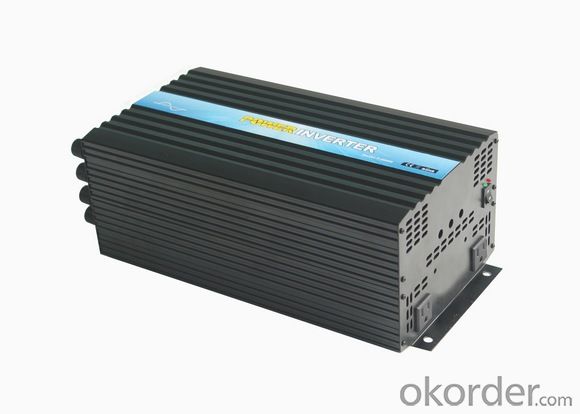
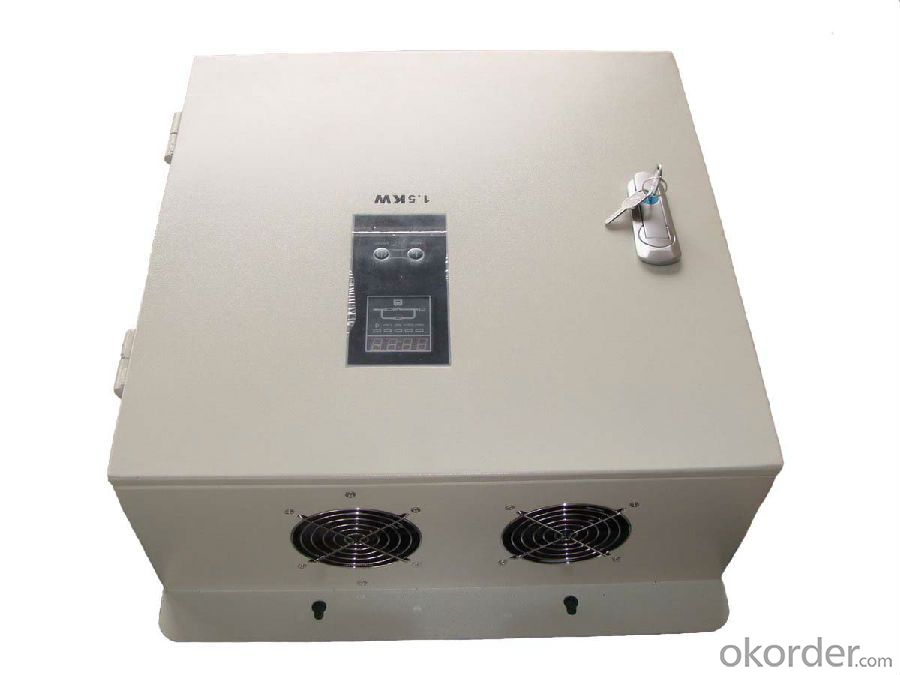
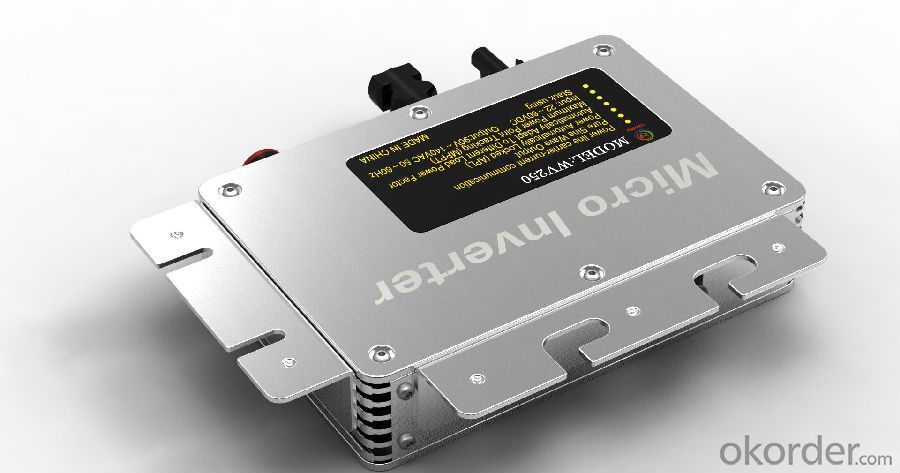
FAQ
Q: Do you have the CE, TUV, UL Certification?
A: We’ve already passed all the tests, and any certificate is available.
Q: Have you ever sold your products to companies in my country?
A: Of course, we have customers in all general PV markets, but I think we should expand our market share along with the market growth.
Q: When did your company set up? You are a new company, how can I believe your quality?
A: We entered into Solar PV industry in 2005, now we have several plants in manufacturing of a-Si and c-Si panels, and our capacity is 220MW per year. Till now we have already passed all the tests by authorized laboratories, e.g. TUV, CE, UL.
Q: Can you help us install the module if we cooperate with you?
A: We haven’t entered into installation sector, but we have the plan in near future.
Q: How do you pack your products?
A: We have rich experience on how to pack the panels to make sure the safety on shipment when it arrives at the destination.
Q: Can you do OEM for us?
A: Yes, we can.
Q: Can we visit your factory?
A: Surely, I will arrange the trip basing on your business schedule.
- Q: Can a solar inverter be used in a mobile or RV application?
- Yes, a solar inverter can be used in a mobile or RV application. A solar inverter is designed to convert the DC power generated by solar panels into AC power that can be used to power appliances and devices. In an RV or mobile application, a solar inverter can help convert the solar energy into usable power for charging batteries, running appliances, and powering electronic devices on the go.
- Q: What is the role of a solar inverter in maximizing solar panel output?
- The role of a solar inverter in maximizing solar panel output is to convert the direct current (DC) produced by the solar panels into alternating current (AC) that can be used to power electrical devices in our homes and businesses. Additionally, solar inverters also ensure that the solar panels are operating at their maximum power point, which allows for optimal energy production and efficiency.
- Q: Can a solar inverter be used with a solar-powered remote monitoring system?
- Yes, a solar inverter can be used with a solar-powered remote monitoring system. The solar inverter is responsible for converting the direct current (DC) generated by the solar panels into alternating current (AC) that can be used to power various devices, including the remote monitoring system. This allows the remote monitoring system to be powered by the solar panels and ensures that it operates efficiently.
- Q: How does a solar inverter handle grid voltage variations?
- A solar inverter handles grid voltage variations by continuously monitoring the voltage levels of the grid. When the grid voltage increases or decreases beyond a certain range, the inverter adjusts its output voltage accordingly to maintain a stable and consistent supply of electricity. This ensures that the solar power system remains synchronized with the grid and prevents any damage to the inverter or the connected equipment.
- Q: What is the role of reactive power control in a solar inverter?
- The role of reactive power control in a solar inverter is to manage and optimize the flow of reactive power between the solar PV system and the grid. This control allows the inverter to regulate the power factor, which is the ratio of real power to apparent power, ensuring that the system operates efficiently and in compliance with grid requirements. By adjusting the reactive power output, the inverter can compensate for voltage fluctuations and stabilize the grid, improving the overall performance and reliability of the solar power generation system.
- Q: Can a solar inverter be used in a solar-powered air conditioning system?
- Yes, a solar inverter can be used in a solar-powered air conditioning system. The solar inverter is responsible for converting the DC power generated by solar panels into usable AC power for appliances, including air conditioners. By utilizing a solar inverter, the solar-powered air conditioning system can effectively harness solar energy to cool spaces while minimizing reliance on traditional energy sources.
- Q: Can a solar inverter be used with a three-phase power system?
- Yes, a solar inverter can be used with a three-phase power system. In fact, most modern solar inverters are designed to work with both single-phase and three-phase power systems.
- Q: How do you calculate the maximum power point tracking range for a solar inverter?
- To calculate the maximum power point tracking (MPPT) range for a solar inverter, you need to consider various factors such as the solar panel's voltage and current characteristics, temperature, and the inverter's efficiency. Using the voltage-current (V-I) curve of the solar panel, the MPPT range can be determined by finding the point where the power output is maximized. This is typically done using algorithms within the solar inverter to continuously adjust the operating point to track the maximum power available from the solar panel.
- Q: How does the maximum AC current rating affect the performance of a solar inverter?
- The maximum AC current rating of a solar inverter directly impacts its performance. If the inverter has a higher maximum AC current rating, it can handle a larger amount of current flowing through it. This means it can support a higher capacity of solar panels and generate more power. On the other hand, if the inverter has a lower maximum AC current rating, it may not be able to handle high currents and can lead to inefficiencies or even system failures. Therefore, selecting an inverter with an appropriate maximum AC current rating is crucial for ensuring optimal performance and reliability of the solar power system.
- Q: How does a solar inverter handle excess power production?
- A solar inverter handles excess power production by converting the surplus energy generated by the solar panels into usable AC power. This excess power is either fed back into the grid or stored in batteries for later use, depending on the type of solar system setup.
Send your message to us
CNBM-1500TL Solar Inverter Off Grid
- Loading Port:
- Shanghai
- Payment Terms:
- TT OR LC
- Min Order Qty:
- 1000 watt
- Supply Capability:
- 100000000 watt/month
OKorder Service Pledge
OKorder Financial Service
Similar products
Hot products
Hot Searches
Related keywords
